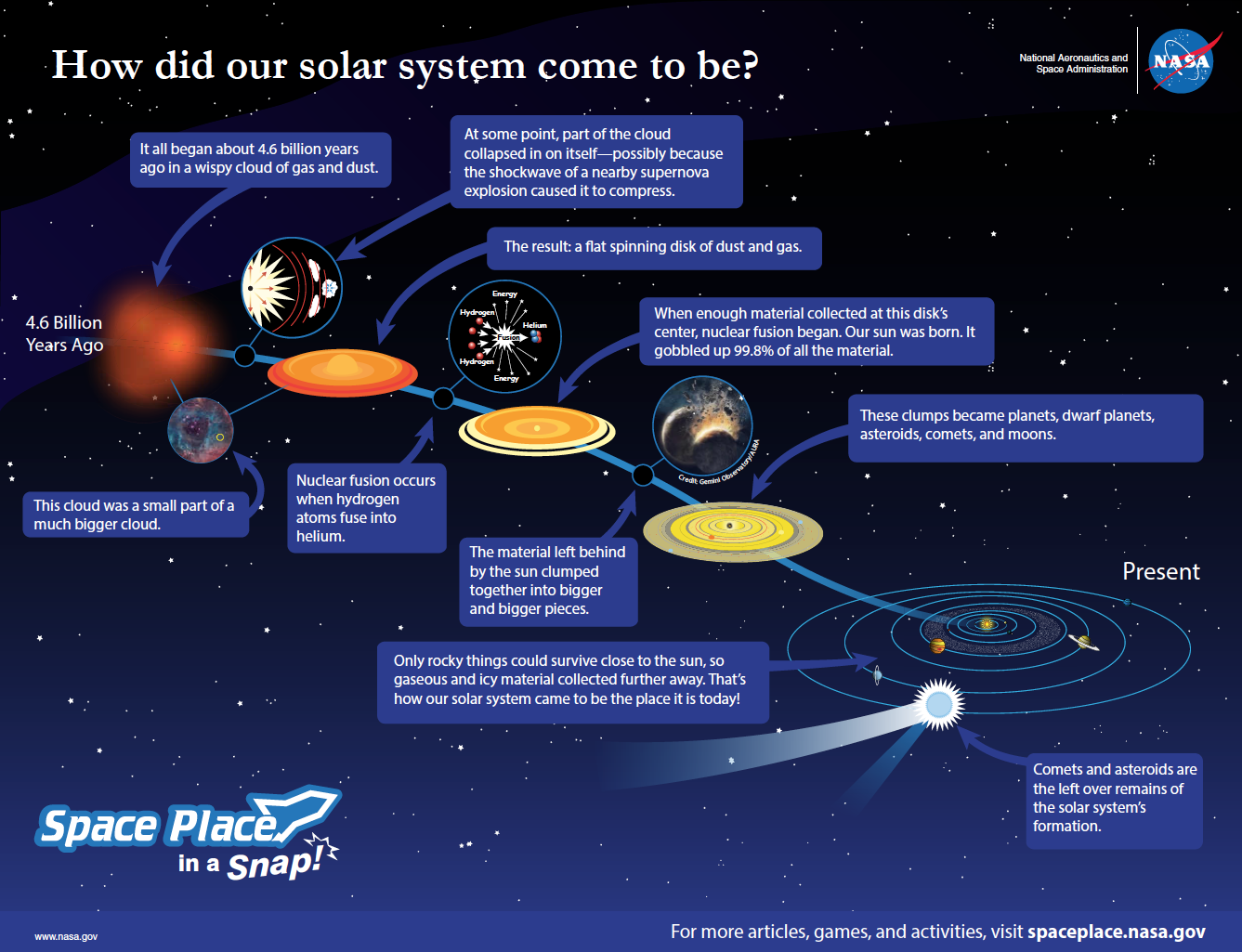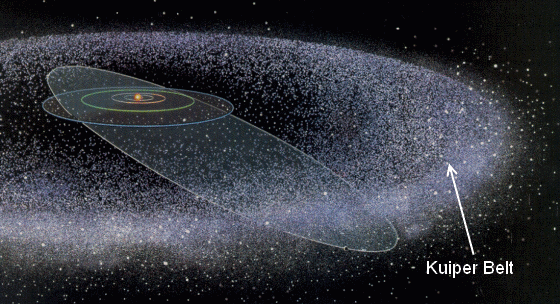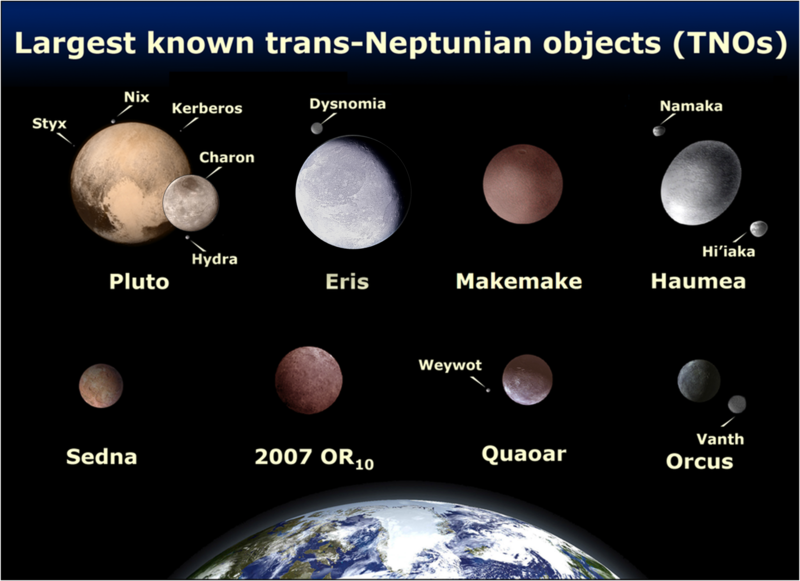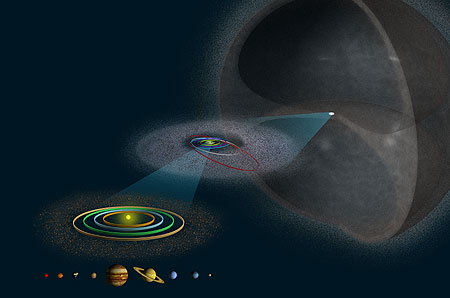It looks like you're using an Ad Blocker.
Please white-list or disable AboveTopSecret.com in your ad-blocking tool.
Thank you.
Some features of ATS will be disabled while you continue to use an ad-blocker.
1
share:
every time i hear about us finding new things in space it always seems to be straight away from us relatively speaking, so my questions are do we look
for plants above / below us and have we found any above or below us?
edit on 16-9-2015 by theboarman because: (no reason given)
a reply to: theboarman
The message didn't disappear .
Was your thread about empty space?
When you click this form-field, this message will disappear.
The message didn't disappear .
Was your thread about empty space?
edit on 35930America/ChicagoWed, 16 Sep 2015 23:35:06 -0500000000p3042 by interupt42 because: (no reason
given)
Well, there is no "above" or "below" in space, but I assume you're talking about the directions 'up' and 'down' from the Earth's poles. My initial
guess would be that yes, we have detected exoplanets in those directions, but honestly, I don't know. I'm sure Jade will be by shortly with a more
definitive answer.
a reply to: theboarman
We have not found planets in our solar system above or below us. Pluto is the only one that orbits that way. I think we are looking for planets in other star systems all over the place, even above and below us. We have found quite a few planets in other solar systems.
We have not found planets in our solar system above or below us. Pluto is the only one that orbits that way. I think we are looking for planets in other star systems all over the place, even above and below us. We have found quite a few planets in other solar systems.
My father has always brought this question up to me on occasion. We always have pictures out to the "left" and "right" of earths poles but never
anything above or below.
originally posted by: theboarman
every time i hear about us finding new things in space it always seems to be straight away from us relatively speaking, so my questions are do we look for plants above / below us and have we found any above or below us?
That's a very vague question, for starters looking due north isn't actually "looking straight up" because the earth is tilted. All planets in our solar system with the exception of Pluto, which is now actually a dwarf planet (it's smaller than our moon) are on roughly a level orbit with each other.
Here's a pic that demonstrates what I mean.
As for as our galaxy, we are in a spiral galaxy so the same goes for the majority of it, orbiting on a level plane, where as in an elliptical galaxy there is little order and is more circular. Elliptical galaxies are commonly believed to have formed from 2 galaxies colliding, here is a simulation of our galaxy and Andromeda colliding to become an elliptical galaxy
a reply to: theboarman
There is a flat plane on which the planets orbit the Sun, but the ex-planet Pluto seems to be out of whack and orbits on a plane inclined at roughly 17 degrees.
Of course the Sun and all the planets orbit the galactic core but the plane of our solar system planetary orbits is at 63 degrees to the galactic plane.
The galaxies are all at different planes to each other, too. There also doesn't seem to be any general rule governing how galactic planes are arranged (and which might possibly give us an idea of our position in the whole universe). It's all pretty random at present.
Also galaxies orbit each other in clusters and super clusters, too.
There are three 'models' that theorize how we might gain an understanding of galactic orientation. You can read about it here on Wikipedia - Galactic Orientation
There is a flat plane on which the planets orbit the Sun, but the ex-planet Pluto seems to be out of whack and orbits on a plane inclined at roughly 17 degrees.
Of course the Sun and all the planets orbit the galactic core but the plane of our solar system planetary orbits is at 63 degrees to the galactic plane.
The galaxies are all at different planes to each other, too. There also doesn't seem to be any general rule governing how galactic planes are arranged (and which might possibly give us an idea of our position in the whole universe). It's all pretty random at present.
Also galaxies orbit each other in clusters and super clusters, too.
There are three 'models' that theorize how we might gain an understanding of galactic orientation. You can read about it here on Wikipedia - Galactic Orientation
The planets orbit within a variety of degrees of the plane of the ecliptic. This is at roughly 90 degrees from the solar poles. This is generally
thought to be a result of the proto-solar/proto-planetary disc that our solar system formed from. While some planets are more inclined from this plane
than others. In fact, in relation to the solar equator, Earth has the highest inclination of the 8 Major planets, at 7.155 degrees. But the ecliptic
does not truly follow the plane of the Solar equator, so inclinations are measured by either the degrees that they vary from Earth's orbital plane, or
what's called the invariable plane. This is sort of an average of inclinations.
While it is thought that the Oort Cloud is probably spherical, the majority of larger objects in the Solar System generally orbit in the same fashion as the planets.
While it is thought that the Oort Cloud is probably spherical, the majority of larger objects in the Solar System generally orbit in the same fashion as the planets.
edit on 17-9-2015 by pfishy because: (no reason given)
If you dig into the Star Trek Encyclopedia they talk about how they navigate on three axis, as there really is no "up" or "down". There is a "galactic
plane" however.
originally posted by: theboarman
every time i hear about us finding new things in space it always seems to be straight away from us relatively speaking, so my questions are do we look for plants above / below us and have we found any above or below us?
originally posted by: AdmireTheDistance
Well, there is no "above" or "below" in space, but I assume you're talking about the directions 'up' and 'down' from the Earth's poles. My initial guess would be that yes, we have detected exoplanets in those directions, but honestly, I don't know. I'm sure Jade will be by shortly with a more definitive answer.
Correct.
I think theboarman was talking about finding objects which are part of our solar system though.
So here is the answer.....
Before our solar system was formed there was a big cloud of gas and dust. Eventually this cloud of gas and dust collapsed in on itself and began spinning.
Ever make a pizza? You start with a big ball of dough and if you've ever seen some of the best pizza makers in action you see them spin that ball so it flattens out.
That's what happens when planetary systems begin forming. Before the planets there is a big disk of dust and gas rotating. The star forms in the center due to a lot of material coalescing there and planets form in the disc.
We know this because we can see it happening around other stars right now.
Here is an infographic which illustrates the process:

Ok so now the Solar System is formed and all the major planets orbit in the same plane (called "The Plane of the Ecliptic" or simply "The Ecliptic".
However some things left over from the disk, WAY far out remain. Beyond Neptune is a belt of stuff left over called the Kuiper Belt.
Objects further out than Neptune in the Kuiper Belt often have orbits inclined or tilted in relationship to the ecliptic:

Objects in the Kuiper belt have orbital periods of 150 years to 500 years. Some of these objects have been discovered and have orbits which cross the orbit of Neptune. These objects are called Trans-Neptunian Objects (TNOS).
TNOs have been given names. Here are eight of them:

Pluto has an orbit like them and has not cleared its orbit, but rather shares it with other TNOS which we consider Pluto part of that family of objects, it's just the nearest one. It's a minor planet from the Kuiper Belt just as Ceres is a minor planet from the Asteroid Belt.
TNOs are hard to spot. While Pluto was discovered in 1930, the next TNO was not found until 1992 because the invention of the CCD allowed them to be found. Another case of technology developed for other uses (in this case, cheap home video cameras) allowing for a whole new era of discovery in astronomy.
There have been many TNOs and KBOs found since then.
There is an even bigger area of leftover stuff further out called the Oort Cloud, the "shell" in the graphic below:

This is where a lot of long period comets come from. Comets also often have orbits which are inclined in relation with the ecliptic.
Objects in the Oort Cloud have orbital periods ranging from centuries to thousands of years.
Since comets could potentially pose a great threat to Earth there have been surveys for objects above and below the ecliptic and this is an ongoing area monitored by amateur and professional astronomers who look to discover any objects there.
I hope this answers your question
edit on 17-9-2015 by JadeStar because: (no reason given)
boy am i going to cheese off Relativists here... cannot be helped though.
google the following question: "is there a preferred direction in space?"
there may well be. Yet Relativity says there isn't one. or more precisely there is not absolute reference frame. But a preferred direction in space implies a absolute reference frame.
but if you google that you will see multiple articles about special directions in space. like the universe is not expanding at the same speed in all directions but piece meal. some have to do with that plane WRT large scale structures such as galaxies and even larger stuff such as filaments across the universe. anyway it is a fascinating question.
google the following question: "is there a preferred direction in space?"
there may well be. Yet Relativity says there isn't one. or more precisely there is not absolute reference frame. But a preferred direction in space implies a absolute reference frame.
but if you google that you will see multiple articles about special directions in space. like the universe is not expanding at the same speed in all directions but piece meal. some have to do with that plane WRT large scale structures such as galaxies and even larger stuff such as filaments across the universe. anyway it is a fascinating question.
edit on 17-9-2015 by stormbringer1701 because: (no reason given)
edit on
17-9-2015 by stormbringer1701 because: (no reason given)
This thread is a joke right ?
Believing that earth is a stationery object in a stationary solar system in a stationary galaxy
Replace "stationary" with moving and rotating, if in doubt.
Believing that earth is a stationery object in a stationary solar system in a stationary galaxy
Replace "stationary" with moving and rotating, if in doubt.
originally posted by: theboarman
every time i hear about us finding new things in space it always seems to be straight away from us relatively speaking, so my questions are do we look for plants above / below us and have we found any above or below us?
All things being relative, and the universe being a three dimensional construct; the only real up and/or down would be either above your head and/or below your feet.
Having said that, I would suggest everything which is "out there" in space is above us. That leaves only the dirt of our own planet to be below us.
a reply to: JadeStar
Do us a favour plz....can you start an astronomy 101 thread adleast once a week for people like me who are interested in the subject/knowledge you have. Your replies are easily accessible for all and we need passionate people like yourself to educate the masses. Food for thought but I know many others would appreciate it.
With great knowledge comes great responsibility. ..
Do us a favour plz....can you start an astronomy 101 thread adleast once a week for people like me who are interested in the subject/knowledge you have. Your replies are easily accessible for all and we need passionate people like yourself to educate the masses. Food for thought but I know many others would appreciate it.
With great knowledge comes great responsibility. ..
edit on 17-9-2015 by rossacus because: (no reason given)
NM. wrong thread.
edit on 17-9-2015 by stormbringer1701 because: (no reason given)
new topics
-
President BIDEN's FBI Raided Donald Trump's Florida Home for OBAMA-NORTH KOREA Documents.
Political Conspiracies: 2 hours ago -
Maestro Benedetto
Literature: 3 hours ago -
Is AI Better Than the Hollywood Elite?
Movies: 4 hours ago -
Las Vegas UFO Spotting Teen Traumatized by Demon Creature in Backyard
Aliens and UFOs: 7 hours ago -
2024 Pigeon Forge Rod Run - On the Strip (Video made for you)
Automotive Discussion: 8 hours ago -
Gaza Terrorists Attack US Humanitarian Pier During Construction
Middle East Issues: 8 hours ago -
The functionality of boldening and italics is clunky and no post char limit warning?
ATS Freshman's Forum: 9 hours ago -
Meadows, Giuliani Among 11 Indicted in Arizona in Latest 2020 Election Subversion Case
Mainstream News: 10 hours ago -
Massachusetts Drag Queen Leads Young Kids in Free Palestine Chant
Social Issues and Civil Unrest: 10 hours ago
top topics
-
President BIDEN's FBI Raided Donald Trump's Florida Home for OBAMA-NORTH KOREA Documents.
Political Conspiracies: 2 hours ago, 20 flags -
Krystalnacht on today's most elite Universities?
Social Issues and Civil Unrest: 13 hours ago, 9 flags -
University of Texas Instantly Shuts Down Anti Israel Protests
Education and Media: 16 hours ago, 8 flags -
Weinstein's conviction overturned
Mainstream News: 12 hours ago, 8 flags -
Supreme Court Oral Arguments 4.25.2024 - Are PRESIDENTS IMMUNE From Later Being Prosecuted.
Above Politics: 13 hours ago, 8 flags -
Massachusetts Drag Queen Leads Young Kids in Free Palestine Chant
Social Issues and Civil Unrest: 10 hours ago, 7 flags -
Gaza Terrorists Attack US Humanitarian Pier During Construction
Middle East Issues: 8 hours ago, 7 flags -
Las Vegas UFO Spotting Teen Traumatized by Demon Creature in Backyard
Aliens and UFOs: 7 hours ago, 6 flags -
Meadows, Giuliani Among 11 Indicted in Arizona in Latest 2020 Election Subversion Case
Mainstream News: 10 hours ago, 5 flags -
2024 Pigeon Forge Rod Run - On the Strip (Video made for you)
Automotive Discussion: 8 hours ago, 3 flags
active topics
-
VirginOfGrand says hello
Introductions • 9 • : TheMichiganSwampBuck -
President BIDEN's FBI Raided Donald Trump's Florida Home for OBAMA-NORTH KOREA Documents.
Political Conspiracies • 7 • : charlest2 -
Las Vegas UFO Spotting Teen Traumatized by Demon Creature in Backyard
Aliens and UFOs • 10 • : pianopraze -
Supreme Court Oral Arguments 4.25.2024 - Are PRESIDENTS IMMUNE From Later Being Prosecuted.
Above Politics • 84 • : Daughter2v2 -
Is AI Better Than the Hollywood Elite?
Movies • 12 • : rickymouse -
British TV Presenter Refuses To Use Guest's Preferred Pronouns
Education and Media • 170 • : Annee -
Massachusetts Drag Queen Leads Young Kids in Free Palestine Chant
Social Issues and Civil Unrest • 14 • : ToneD -
Sol Et Luna - TIME2024
Short Stories • 10 • : BrotherKinsMan -
University of Texas Instantly Shuts Down Anti Israel Protests
Education and Media • 263 • : cherokeetroy -
Gaza Terrorists Attack US Humanitarian Pier During Construction
Middle East Issues • 26 • : nugget1
1
